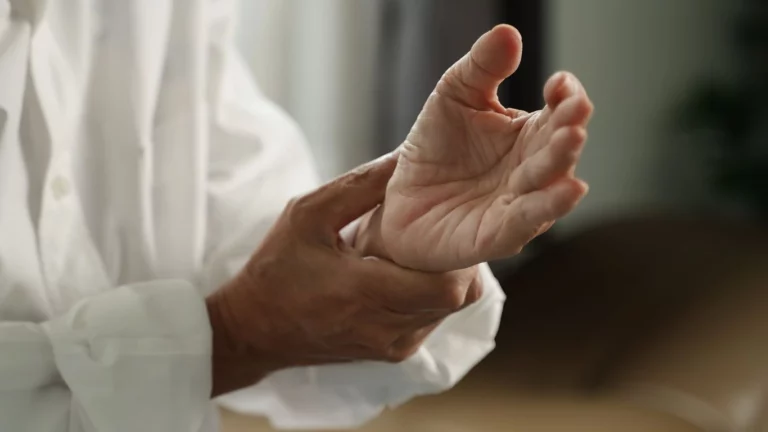How to Prevent Reflux After Drinking Wine: Top Tips and Remedies
Ever gone out with friends, enjoyed a few glasses of wine, only to come home with that awful burning sensation creeping up your chest and throat? If that sounds familiar, you’re definitely not alone. Reflux after drinking wine is something I see and hear about constantly—both from patients and honestly, from my own experience working in a gastroenterology clinic. You’d be surprised how many otherwise healthy folks end up with that annoying, sometimes painful, acid reflux episode after just a couple of glasses. Wine is relaxing, yes—but it can also be a sneaky trigger for digestive drama.
Why Wine Can Be a Sneaky Trigger for Reflux

So let’s talk science—but keep it simple. Wine, particularly red wine, contains certain properties that can irritate the lower esophageal sphincter (LES), which is the muscle that acts like a gatekeeper between your stomach and esophagus. When this muscle relaxes too much (which alcohol encourages), it lets stomach acid sneak back up the esophagus. That’s when you feel the burn—literally.
And here’s the kicker: wine is acidic by nature. Combine that with its ability to reduce LES pressure and stimulate stomach acid production? You’ve got yourself a recipe for reflux. Add a rich, fatty meal to the mix and you might as well just keep the antacids handy.
But Isn’t Wine Supposed to Be Good for You?
Moderation is key, right? There are studies that suggest red wine has some heart health benefits, but in the world of gastroenterology, we see a different side of that coin. I’ve had patients tell me they only drink one glass a night and still feel symptoms creeping in. For some folks, even that small amount can be enough to cause reflux—especially if they’re already prone to GERD (Gastroesophageal Reflux Disease).
Here’s something I tell patients all the time: Your digestive system doesn’t care that wine is “organic” or “natural.” If it’s triggering acid reflux, it’s triggering acid reflux. Full stop.
Common Symptoms of Reflux After Drinking Wine

You might not even realize your wine habit is behind some of your digestive symptoms. It’s not always about heartburn. Sometimes it’s more subtle. Here are some signs you might be dealing with reflux after sipping wine:
- Burning sensation in the chest (heartburn)
- Sour or bitter taste in the mouth (especially after lying down)
- Frequent throat clearing or coughing
- Hoarseness or a sore throat in the morning
- Bloating or burping
- Regurgitation—feeling like food or liquid is coming back up
Honestly, I had a patient who only experienced coughing at night and was shocked to find out it was reflux related. She never felt heartburn at all. But after cutting out wine in the evenings? Her cough vanished. It was eye-opening.
How Your Body Reacts Differently to Alcohol
It’s not just about what you drink—it’s how your body reacts to it. Some people have naturally higher acid levels. Others may have mild inflammation in the esophagus or stomach lining that gets worse with alcohol. If you’re taking medications like NSAIDs (ibuprofen, for instance), or already dealing with gut issues like gastritis, wine can be like pouring fuel on a fire.
Quick tip: The older we get, the slower our digestion tends to be. That’s why a glass of wine that didn’t bother you at 25 might absolutely wreck you at 40. Add stress and poor sleep, and your gut’s going to rebel fast.
Risk Factors That Make Reflux After Drinking Wine More Likely

In the clinic, we look at the whole picture. There are certain factors that raise your chances of getting reflux after drinking wine—even if you’ve never been formally diagnosed with GERD:
- Being overweight or having a higher BMI – Excess weight can put pressure on the stomach, pushing acid upward.
- Eating late at night – Wine with dinner is fine, but lying down soon after? That’s reflux waiting to happen.
- Smoking – Combines terribly with alcohol when it comes to reflux risk.
- Certain medications – Blood pressure meds, muscle relaxers, and even birth control pills can relax the LES.
- Stress – High cortisol can mess with digestion and gut motility.
And yes, gender plays a role too. From what I’ve seen, women tend to report reflux symptoms more frequently—especially during perimenopause and menopause. Hormonal shifts can make your GI system extra sensitive, and alcohol just adds insult to injury.
The Wine Type Matters—Red vs. White vs. Sparkling
Not all wines are created equal when it comes to reflux. I’ve had so many patients say, “It’s only the red wine that gets me!” and they’re usually right. Red wine has more tannins and higher levels of histamines, which can trigger both reflux and headaches.
- Red Wine: More acidic, contains more histamines and tannins—can worsen symptoms in many people.
- White Wine: Still acidic, but slightly less intense than red. Easier on some stomachs.
- Sparkling Wines: Champagne or prosecco? The bubbles can literally push acid up, especially when mixed with food.
I remember one guy who came in swearing off sparkling wine forever after a New Year’s party gave him the worst heartburn of his life. He thought it was food poisoning at first, but it turned out to be a textbook reflux episode.
How to Enjoy Wine Without the Reflux Regret

Alright, so let’s get real—most people aren’t going to just quit wine cold turkey. I mean, I wouldn’t expect that from anyone, especially when it’s part of your lifestyle or social routine. So the question becomes: how can you enjoy wine without triggering that awful reflux? Here’s what I often tell patients (and honestly, remind myself of too when wine is on the menu).
Timing Is Everything
One of the biggest culprits for reflux after drinking wine is when you’re drinking it. If you’re sipping wine right before bed, you’re asking your stomach acid to do somersaults in your esophagus all night long. Give yourself a buffer. I usually suggest cutting off alcohol at least 2-3 hours before lying down. Your digestive system needs that time to process and move things along.
Watch What You’re Pairing It With
Pairing wine with the wrong foods is like throwing gasoline on a fire. If your meal is high in fat—think creamy sauces, fried appetizers, rich cheeses—you’re just making your stomach work overtime. That increases acid production, slows digestion, and makes reflux more likely.
Try sticking with:
- Lean proteins (grilled chicken or fish)
- Steamed or roasted veggies (skip the garlic and onions if you’re sensitive!)
- Whole grains like brown rice or quinoa
And skip dessert if it’s chocolatey or minty—those are known reflux triggers too.
Hydration Hack
Here’s a little trick I learned from a GI nurse I worked with: drink a glass of water between glasses of wine. It helps dilute the acid and gives your stomach a little help moving things along. Bonus—it also slows down your alcohol intake, which can help you avoid going overboard (and waking up with more than just reflux).
When It’s More Than Just Wine: Recognizing Chronic Reflux

There’s a big difference between occasional wine-induced reflux and full-blown GERD. As a Medical Assistant, I’ve seen how patients sometimes dismiss persistent symptoms because they chalk it up to “just something I ate.” But when reflux starts showing up multiple times a week, or even daily? It’s time to dig deeper.
Here’s When You Should Be Concerned:
- Heartburn happening more than 2x a week
- Difficulty swallowing or feeling like food gets stuck
- Chronic cough that won’t go away
- Voice changes or persistent hoarseness
- Chest pain not related to the heart
One patient I worked with thought he just had seasonal allergies—constant throat clearing, post-nasal drip, that kind of thing. Turned out to be laryngopharyngeal reflux (LPR), a form of silent reflux. Wine was a big part of his nightly wind-down, and cutting back made a huge difference.
Testing and Diagnosis
If you’re dealing with symptoms like those above, your GI provider might suggest testing—like an upper endoscopy or a pH test. Don’t be intimidated by that. These tests help rule out more serious issues and give a clear picture of what’s going on. In the clinic, we often used patient symptom logs (yes, even a notebook!) to help spot patterns—wine being one of the most common links.
Natural Remedies and Lifestyle Changes That Actually Help

Sometimes the best reflux remedies don’t come in a pill bottle. Sure, medications like PPIs and antacids have their place—but when you’re looking for long-term control, lifestyle is everything. I’ve seen patients get off daily meds just by making some simple adjustments.
Elevate Your Head While Sleeping
This one’s a game changer. Sleeping flat makes it easier for stomach acid to slide back into the esophagus. Try elevating the head of your bed by 6 to 8 inches. Not just extra pillows—actual elevation. You’d be amazed how much of a difference that makes, especially if you had wine with dinner.
Keep a Reflux Diary
Yes, I know it sounds old-school. But seriously, tracking your meals, drinks, symptoms, and sleep can uncover triggers you didn’t even realize. We had one patient who realized it wasn’t just wine—it was wine and tomato-based meals together that were the issue. Once she separated the two? Her reflux improved dramatically.
Weight and Reflux: A Sensitive but Important Topic
I always try to approach this gently, because weight isn’t the whole story—but it is a piece of the puzzle. Even a small weight loss (5-10 pounds) can make a big difference in reflux symptoms. If your BMI is higher, that extra pressure on your abdomen can push acid upward. It’s not about looking a certain way—it’s about relieving pressure on your digestive system.
Mindful Drinking Tips
- Choose drier wines—sweet wines tend to be more acidic
- Limit yourself to 1 glass and sip slowly
- Eat before you drink—never on an empty stomach
- Avoid carbonated mixers or sparkling wines if you’re sensitive
And here’s one of my go-to tricks: If I know I’m having wine, I skip other known triggers that day (like citrus, spicy food, or tomato sauce). Think of it like a reflux budget—you only get so many “points” in a day before your body starts protesting.
Supplements and Herbs Some Patients Swear By
While not all supplements work for everyone, some of my patients have had luck with natural remedies. Always talk to your provider first, of course—but here are a few worth mentioning:
- Deglycyrrhizinated licorice (DGL): Helps soothe the lining of the stomach and esophagus
- Slippery elm: Can coat and protect irritated tissue
- Chamomile or ginger tea: Natural anti-inflammatory and soothing effects
- Melatonin: Some small studies show it might help regulate LES pressure at night
One of our longtime patients kept ginger chews in her bag for after meals. She swore they helped settle her stomach—and honestly, after trying one myself, I get why. Sometimes those little habits make a big difference.
When to Seek Professional Help for Wine-Induced Reflux

While it’s normal for most people to experience occasional reflux after drinking wine, it’s important to know when it’s time to consult with a healthcare professional. There’s a fine line between a mild, occasional flare-up and a more serious, chronic issue like GERD.
Signs You Need to See a Doctor
If you’re regularly experiencing reflux after drinking wine or have other worrisome symptoms, don’t brush them off. Here are some red flags that suggest it’s time to make an appointment with your gastroenterologist or healthcare provider:
- Persistent heartburn: If your symptoms last for more than a few days and are happening frequently, it’s time to check in with a professional.
- Difficulty swallowing: Feeling like food gets stuck or having trouble swallowing, even liquids, can be a sign of a more severe issue.
- Weight loss: If reflux is causing you to lose weight unintentionally or have difficulty eating, it’s important to get checked out.
- Severe chest pain: If you experience chest pain that isn’t related to your heart, it could be related to severe acid reflux or even an ulcer.
- Vomiting blood or black stools: These symptoms are serious and should be addressed by a doctor right away.
I can’t stress enough: If reflux is interfering with your quality of life, it’s worth getting professional input. In the clinic, I’ve seen how early intervention can make a huge difference in preventing long-term damage to the esophagus and improving overall health.
How Your Healthcare Provider Can Help
Your gastroenterologist will likely begin with a thorough examination and may suggest a few diagnostic tests, including:
- Endoscopy: A procedure that allows your doctor to look inside your esophagus and stomach to check for damage or inflammation.
- 24-hour pH monitoring: This test measures how much acid is refluxing into your esophagus.
- Manometry: Tests the pressure and function of your lower esophageal sphincter to see if it’s working properly.
- Barium swallow: An X-ray test that shows how well you’re swallowing and if any acid is backing up into your esophagus.
Once a diagnosis is confirmed, there are various treatment options available, from lifestyle changes to medications (like proton pump inhibitors or H2 blockers) to, in some cases, surgery if things get really severe. Every patient is unique, so it’s crucial to work with your provider to find a tailored solution that works for you.
Prevention and Long-Term Management: Staying Ahead of Reflux

The key to managing reflux, especially if it’s wine-induced, lies in prevention. Long-term relief doesn’t always come from popping a pill every time you’re uncomfortable. Instead, focusing on maintaining a healthy lifestyle can do wonders for keeping your digestive system in check.
Consistent Lifestyle Changes
While everyone’s reflux triggers are different, there are certain habits that can help reduce the likelihood of experiencing discomfort after drinking wine:
- Eat smaller, more frequent meals: Instead of large meals that overload your stomach, try eating smaller portions throughout the day.
- Exercise regularly: Maintaining a healthy weight and keeping your body in good shape can reduce pressure on your abdomen, making reflux less likely.
- Practice relaxation techniques: Since stress is a huge reflux trigger, mindfulness practices, yoga, or even simple breathing exercises can help manage stress levels and reduce symptoms.
- Quit smoking: If you smoke, quitting can significantly reduce reflux symptoms, as smoking weakens the LES.
- Limit alcohol: Even if wine is a trigger, it doesn’t mean you have to eliminate it entirely. You can still enjoy it in moderation—just be mindful of the quantity and timing.
And don’t forget about those nightly habits. Elevating your head during sleep, avoiding late-night snacks, and giving your digestive system time to process before lying down can significantly reduce the chances of reflux after wine.
References
Disclaimer
The information provided in this article is for educational purposes only and is not intended to replace medical advice from your healthcare provider. Always consult with your doctor before making any changes to your diet, lifestyle, or medications. If you are experiencing frequent or severe reflux symptoms, seek professional medical attention for an accurate diagnosis and treatment plan.

Camellia Wulansari is a dedicated Medical Assistant at a local clinic and a passionate health writer at Healthusias.com. With years of hands-on experience in patient care and a deep interest in preventive medicine, she bridges the gap between clinical knowledge and accessible health information. Camellia specializes in writing about digestive health, chronic conditions like GERD and hypertension, respiratory issues, and autoimmune diseases, aiming to empower readers with practical, easy-to-understand insights. When she’s not assisting patients or writing, you’ll find her enjoying quiet mornings with coffee and a medical journal in hand—or jamming to her favorite metal band, Lamb of God.







